Mangalajodi, Odisha: How an Entire Village Transformed from Poaching Birds to Protecting Them.
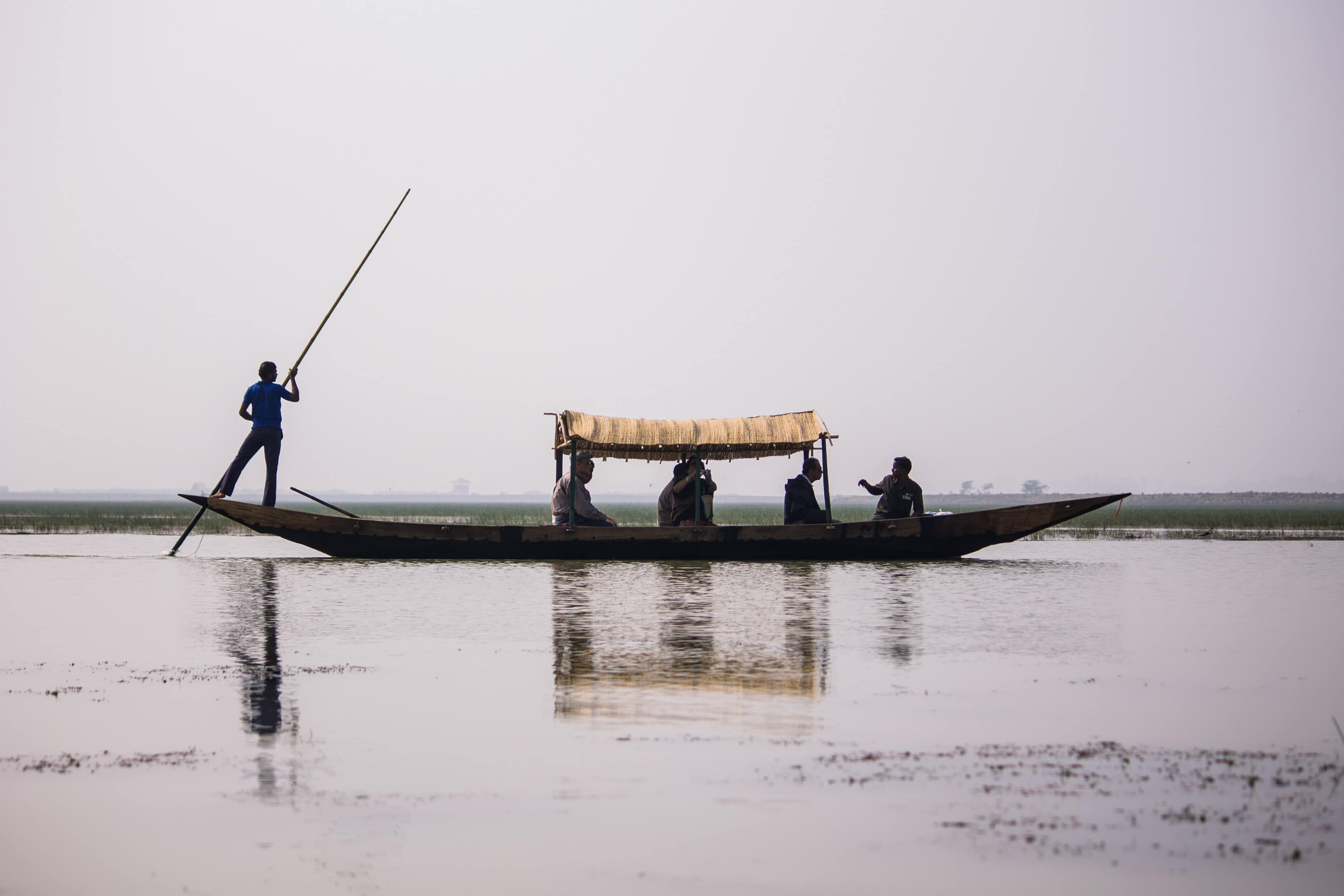
Mangalajodi in Odisha was once a village of poachers. An extraordinary journey of wildlife conservation led to the birth of Mangalajodi Ecotourism – at the heart of which are poachers turned birding guides!
“Asian openbills were the most delicious,” he said. Sun-burnt face, shy smile, eyes fixed at the adult storks far in the distance.
I looked at him with some incredulity. We’ve been so attuned to thinking that it’s ‘normal’ to eat some animals and not others, that it felt strange to hear my birding guide confess his favorite meal was a rare bird.
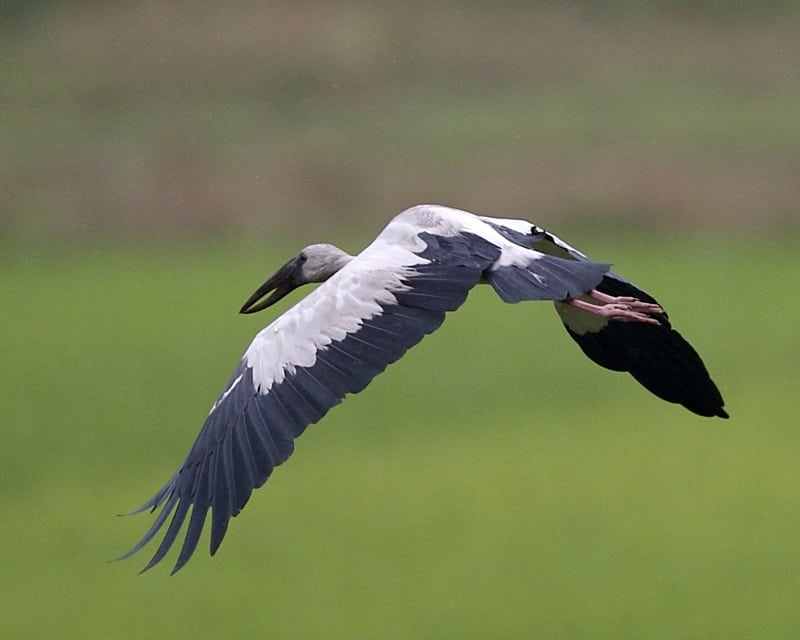
It was my second morning in the state of Odisha (previously called Orissa) on India’s east coast, and I was gliding along silently on a rustic, wooden row boat on the gentle waters of Chilika Lake – India’s, and Asia’s, largest brackish water lake.
On that warm spring day, I had expected to acquaint myself with the wild flying beauties in the marshlands of Mangalajodi, the largest village on the shores of Chilika. But by the time the sun was setting above the wetlands, now alive with bird chatter, I had discovered the most hopeful story of wildlife conservation in India:
Once a village of bird poachers
“It was easy. We caught them in a net and twisted their necks. Or we poisoned the small fish in the wetlands, and when the birds ate them, they died a quick death.”
I was trying hard not to gasp at my guide’s words. And harder, trying not to imagine black godwits and wood sandpipers, with twisted necks, ready to be cooked.
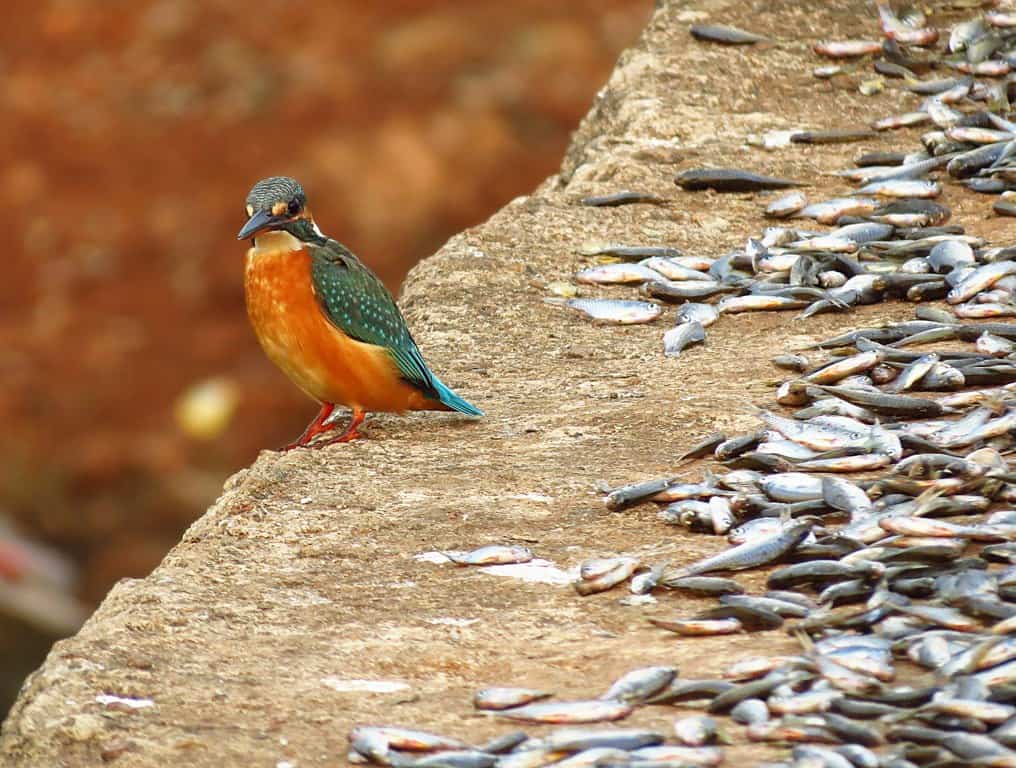
Until over a decade ago, the primary livelihood of nearly a hundred families in Mangalajodi was based on killing, selling and eating birds – many of them migratory, from far flung parts of the world like Siberia.
“In those days, you could go to a dhaba and order a godwit for dinner, just like you’d order tandoori chicken now.”
Over the years, the migratory birds that flew to the marshlands of Mangalajodi in winter instinctively sensed the danger, and their population gradually declined. The lack of awareness and alternate livelihood opportunities earned the local bird poachers and their village a shameful reputation, one that would gradually inspire an incredible transformation.
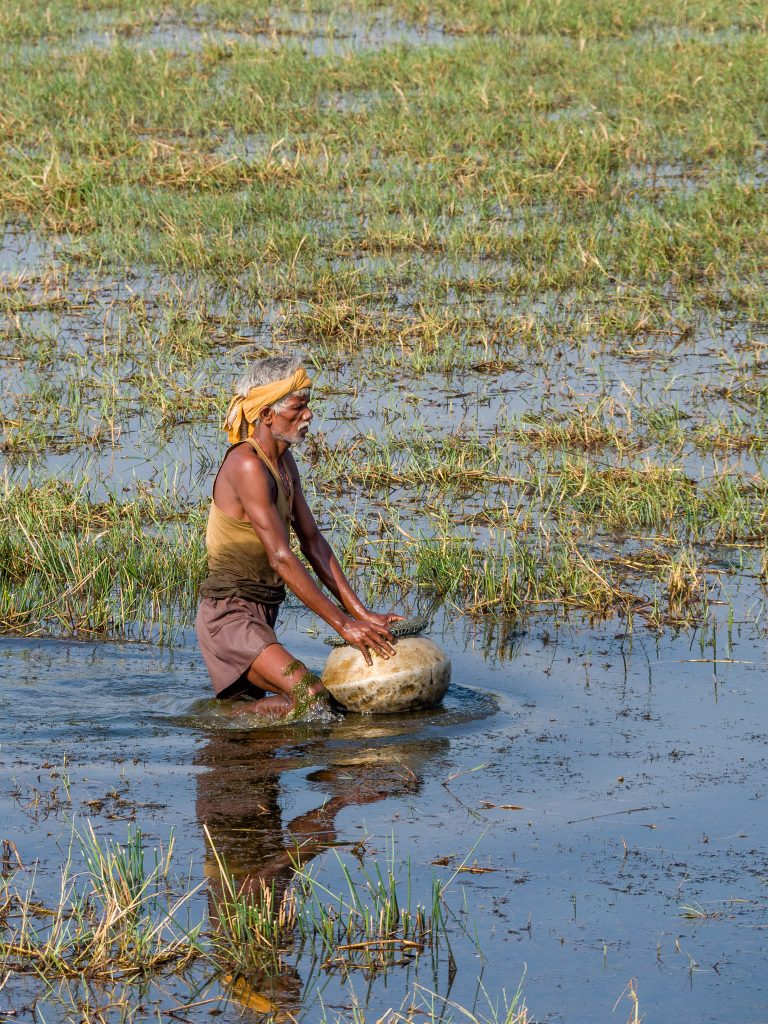
The transformation
I remember chatting with an elderly man on a rainy afternoon in Mangalajodi, as we both took shelter under a tree. Even though he had been a fisherman all his life, he took pride in talking about the transformation of his village.
“Earlier when people heard I was from Mangalajodi, they thought I was a thief. They called us a village of thieves. But their view has changed. Now when they hear I am from Mangalajodi, they respect me. People from all around the world come to our village to see our migratory guests.”
Legend has it that the transformation of Mangalajodi began with one man’s repentance. That man was Nanda Kishore Bhujbal from the surrounding Tangi region, and he was overcome with guilt the first time he shot an Egret with an airgun – almost a coming of age ritual in these parts.
He decided to personally renounce poaching and stood up to the most notorious poachers in the area, once even at knife point, ultimately creating the Mahavir Pakshi Suraksha Samiti (a bird protection collective), which was the beginning of a long, painful transformation in the village. The year was 1997 – and the challenge wasn’t just about changing mindsets, but offering sustainable alternative livelihoods. Enter the concept of eco-tourism, facilitated by an organisation called Indian Grameen Services.
Bhujbal’s persistence gradually won over the rest of the poachers, and in a local temple, they pledged against killing their winged guests. Several organizations (including Wild Orissa and Royal Bank of Scotland) joined hands to train the poachers to become birding guides, impart basic English skills and equip them with the ways of the hospitality industry.
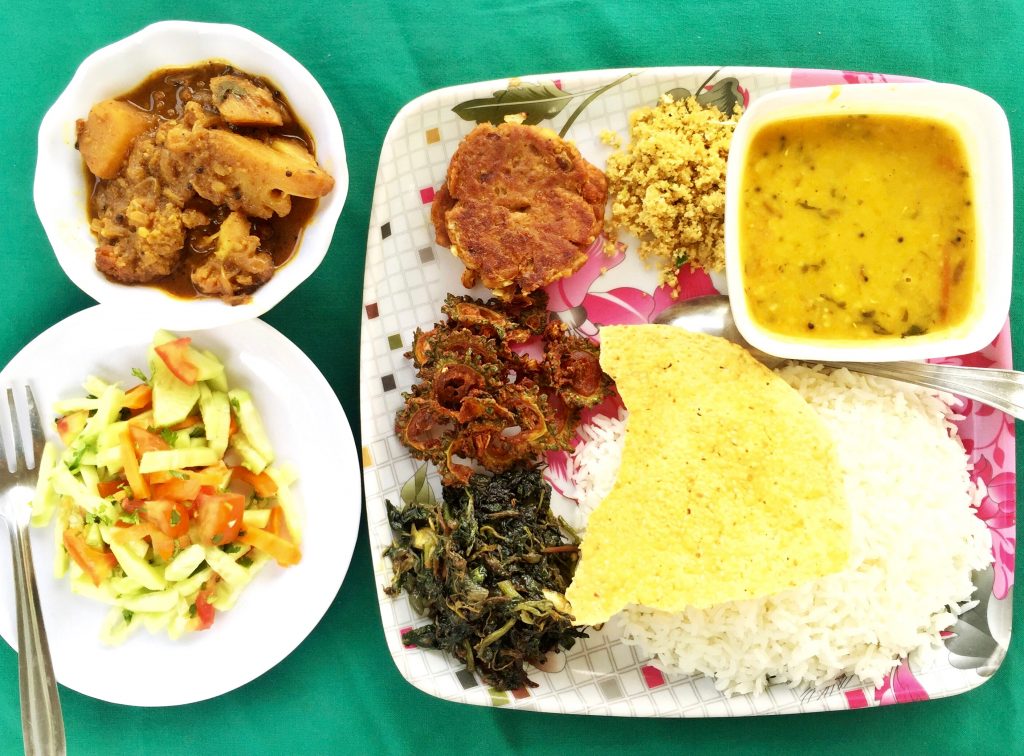
It all made sense on the marshlands as we rowed along, as my guide rattled off the names of migratory birds and related stories of their breeding and feeding habits – the poachers knew their prey so well, it only made sense that they would make excellent guides! And indeed, twenty years later, the guide and boatman I was sailing down Chilika Lake with, were both ex-poachers.
85 families in Mangalajodi make their living through tourism now. By day, they work as birding guides, boatmen and hospitality staff. By night, they patrol the marshlands for any illegal poaching, since protecting the birds is their primary source of livelihood.
“But it’s not just about our livelihoods. These migratory birds, who come from far off corners of the world to our marshlands, are our guests. We have to protect our guests.”
The birds have noticed the transformation in Mangalajodi too: over the years, the migratory bird population has grown from 5,000 to 3,00,000 per year!
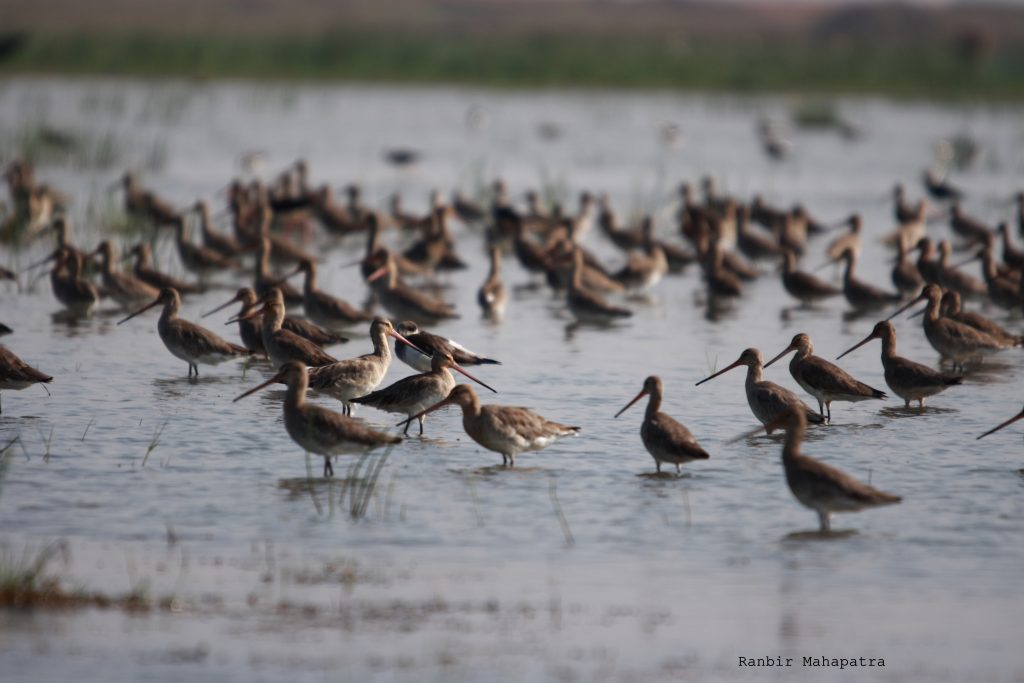
Although the transformation of Mangalajodi’s infamous poachers is remarkable, only a short walk around the area made me realize that issues like poverty, sanitation and open defecation continue to plague the village.
But as we rowed away on our wooden canoe, deep into the marshlands, and I observed my ex-poacher guide and boatman intently spotting birds, it struck me that if there is one place that gives me hope that no change is impossible, it is Mangalajodi.
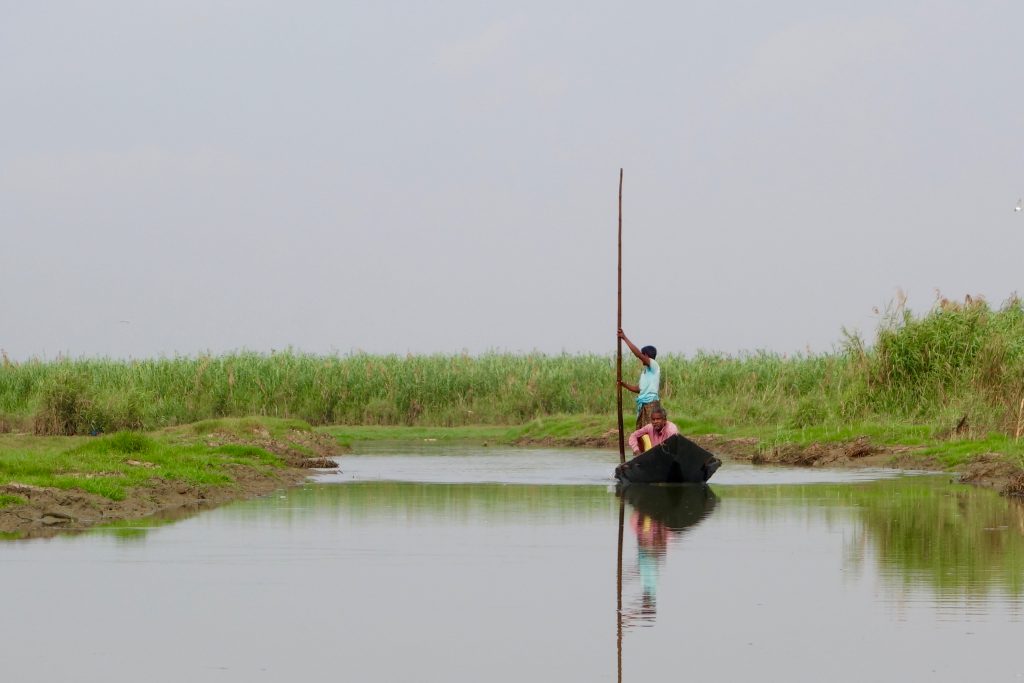
Travel tips
How to reach: Take a flight to Bhubaneshwar, from where Mangalajodi is an easy 2 hour drive.
Where to stay: Stay at the community-run Mangalajodi Ecotourism Campus to get an insight into the transformation of the village. The facilities are pretty basic, but the food is delicious and the conversations thought-provoking.
Best time to visit Mangalajodi / Chilika Lake: November to February is the best season to see migratory birds.
A note on speciesism: The idea that we shouldn’t discriminate based on species, puts in perspective Mangalajodi’s attempt to stop the poaching of birds for food, but not fishing. While 85 families in the village now earn their livelihood through tourism, nearly 750 families continue to rely on the waters of Chilika Lake to kill, catch, sell and eat fish. Why are we so attuned to thinking that it’s ‘normal’ to eat some animals and not others?
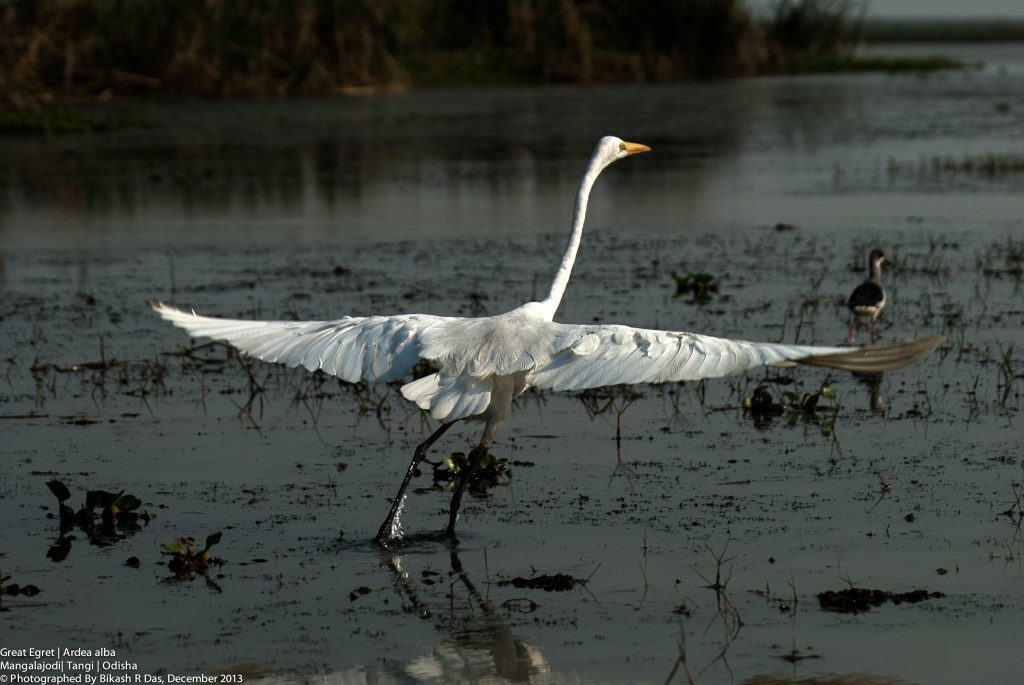
Have you come across any inspiring stories of wildlife conservation in India?
Featured image: Aditya Bhattacharjee
Connect with me on Instagram, Facebook and Twitter for more responsible travel adventures.
Subscribe to my exclusive newsletter to receive travel inspiration in your inbox!
Recommended reading:
This Man Felt Guilty about Killing a Bird. So Saved an Entire Bird Sanctuary!
The Magic of Mangalajodi
Deep Intellect: The Heartwarming Story of an Octopus
Also read:
Wildlife Tourism: Are We Saving the Tiger?
Why Satpura National Park is the Most Unique in India
Why Long Term Travel is More Like Real Life and Less Like Instagram

Hi there! I’m Shivya, and I started this travel blog back in 2011, when travel wasn’t trendy, Instagram didn’t exist and AI wasn’t a thing (simpler times, I know!). I write about slow, meaningful and conscious travel – that is good for us, the places we visit, the people we meet along the way, and the planet at large. Settle down, grab a cup of tea, and read stories that remind you of the essence of travel. I’m so glad you found me!


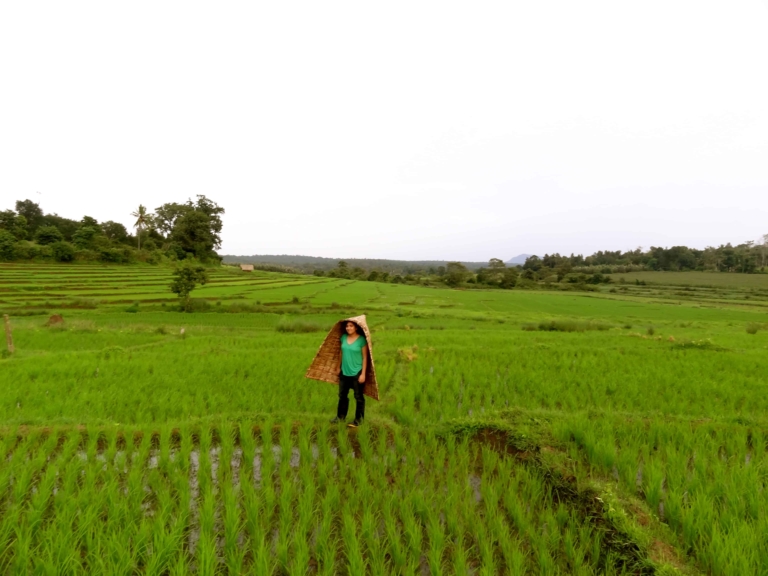

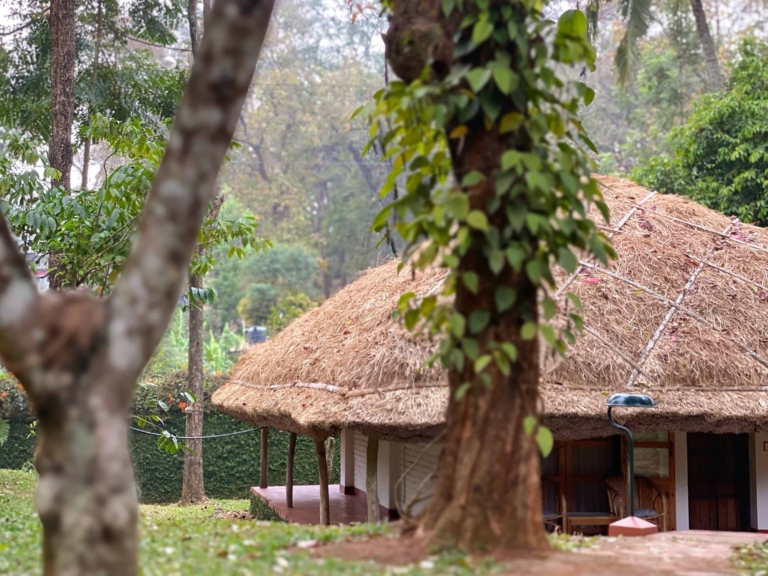
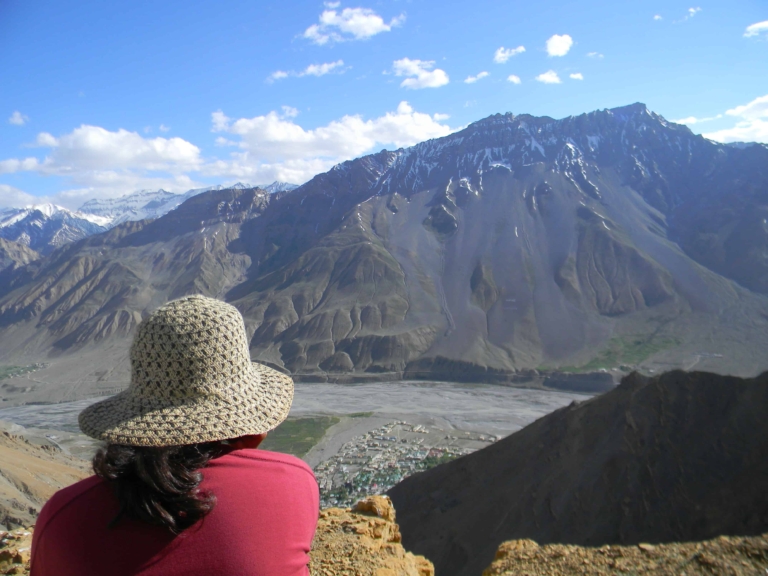
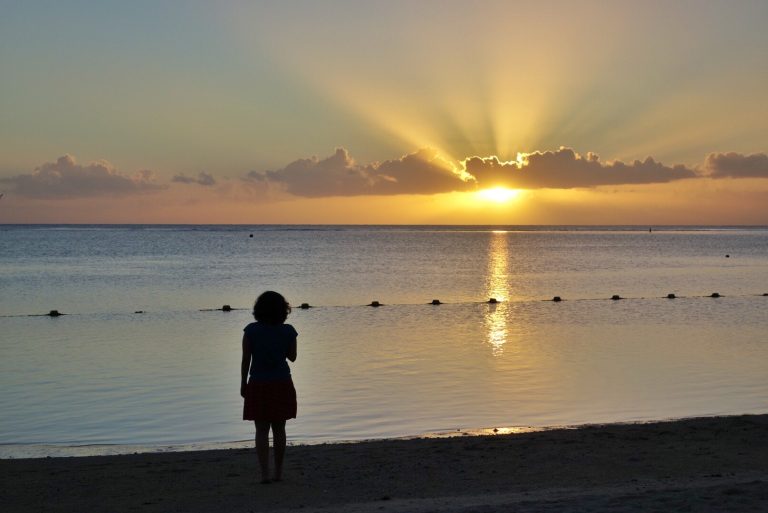
Love your writing. Scenes like this is why India is such an incredible place.
Thanks for sharing such a nice article. Keep up the good work. Love the way you write this article. Thanks for useful information.
First picture posted in the write up is not of an Asian open bill rather it was of a flock of cattle egrets.
Thank you for sharing your experience and these amazing bird photos. I agree that a sustainable alternative lifestyle for the local population is the key to preserving these beautiful creatures. In Borneo, a Dayak told me that all the animals around his village had been hunted and killed. When a man is hungry and without money, who would do any different? But if there is a different way, then there is hope.
Wonderful, hopeful story. Have not heard the term speciesism but have often thought of the concepts it represents. Thanks for the enlightenment.
Good Read..
Thought provoking also.
Its easy to preach somebody, but preaching goes down only on a full stomach.
Really heartening to see an entire village being transformed by a man’s hard work.
Thanks for bringing this story to us.
Happy hunting (for such stories :))
What a hopeful story of transformation! Your note on speciesism is something we all need to understand and act.
Hi Shivya , it’s really nice to read your blogs , they are so much inspiring and motivating.
But seriously I wanted to ask you a question , but it’s not about this blog , but over all , when you travel abroad then how you manage with your visas and all that stuff ??? I mean do you get them well in advance or in the last moment we can get them too ?
I belong to Odisha. I have visited Mangaljodi several times with family. Reading your article makes me feel as if I have never observed it so closely. Thank you so much for this insight Shivya.
Really a good and complete article, full of ideas and inspirations ! such a nice travelling information.
Nice 🙂 Thanks for sharing !!
real humans, love for them and thanks for sharing such a wonderful blog.
I am not sure if you can find it in translation however there was an amazing story by Sunil Ganguly where the protagonist used to kill the migratory birds and called for an entire village’s wrath. Finally he was killed for his misdeeds. However, the question at the end was if it is worth killing a man who is accused of killing a migratory bird! I will see if the translation is in market and let you know. I read it as a child and resonated well with your blog post 🙂